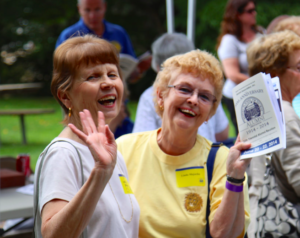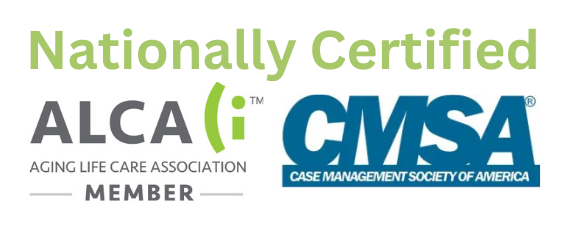The welfare of residents has moved along from the early days of senior care facilities, where the idea was to provide three square meals and a roof. Today, the well-being of residents in Nevada and across the country has taken center stage in the administration and functioning of senior care. Great effort is made to gauge this elusive, and difficult to quantify, quality.
The Evolution of Wellness
 There are different approaches to well-being. Up until a few decades ago, the main approach was clinical. This emphasized the human being as a machine whose functions and components could be divided and treated separately. This approach helped to create a class of highly educated medical engineers, as opposed to caring doctors, to deal with health issues. Again, this could be described as the three square meals and roof attitude.
There are different approaches to well-being. Up until a few decades ago, the main approach was clinical. This emphasized the human being as a machine whose functions and components could be divided and treated separately. This approach helped to create a class of highly educated medical engineers, as opposed to caring doctors, to deal with health issues. Again, this could be described as the three square meals and roof attitude.
Under this system, if your body was functioning at optimum capacity, you were doing great. You were in a state of Wellness. Basic statistics like blood pressure and cardiovascular health were the basic guidelines when determining your state of wellness.
Under this clinical approach, personal feelings and emotions of the individual were seen as separate psychological issues that had no bearing on the rest of the body. However, long term care has evolved over time, and the old approach was modified.
Holistic Wellness Today
When it comes to senior care today, of course, we take a much more comprehensive and realistic approach to well-being. We accept and know that our physical condition affects our mental health and vice versa. The individual is an indivisible unit and needs to be treated as such.
The individual is also an integral part of the society and group that surrounds them. Their well-being affects the surrounding group and the community. This is what is referred to as a holistic approach to wellness.
Holistic wellness is all about integrating all aspects of the senior resident’s life. These include health, social interactions, cognition, participation in activities, and eating and sleeping patterns, into a single comprehensive unit by ensuring that all these factors are being taken care of and, if possible, improved upon. The holistic approach delivers a more fulfilling and affirmative sense of well-being to the senior loved one.
Adapting the Holistic Approach to Senior Care Centers
Well-being is an essential part of any person’s existence, but especially so for seniors with disabilities. This is why many conscientious nursing homes and senior care centers all around the world have invested in this more efficient, humane, and comprehensive approach when caring for their elder residents. They know that the old way of doing things is over, or at least that it should be. Families and seniors have justly condemned this antiquated relic. Today, seniors expect, and deserve better.
Making Wellness a Priority
In a holistic approach, caregivers unite to help make their residents’ wellness a priority.
First, they focus on measuring all aspects that may affect the life experience of a particular resident. These factors to be considered include the physical, environmental, emotional, social, and spiritual.
After ensuring that they have a good handle on what their resident is going through, caregivers work out a plan of action to make improvements. Maybe their resident is less active in their social group than usual, for example, even though the resident’s overall health has not deteriorated. In this case, the caregivers will intervene.
It may be that the caregivers will ensure the resident gets more attention and is encouraged to join in with different activities in the hope of helping him or her to make new friends. If so, they are likely to remain watchful to ensure that any resident’s issue has been truly relegated to the past.
By treating the individual in their entirety, holistic wellness ensures that seniors lead happier, healthier, and more fulfilling lives than ever before. Feeling good is an indicator of your general physical health. It means that stress levels are down, your sleep cycles tend to be more regular, and that your immunity performs as advertised. Being in good physical health means that resident’s social lives tend to be fuller, as they can participate in a greater number of activities and make new friends.
Group Interaction
However, the holistic approach doesn’t stop at the individual level. The group is looked at through the same prism. After all, if you’re surrounded by happy and healthy-minded people, you are more likely to become happier and healthier through this positive interaction and association.
This is why, when working within a holistic approach for seniors with disabilities, group dynamics are very important. Experienced caregivers, with the right support, make an effort to connect people that share interests and whose character traits may complement each other. The idea is to create happy circles of friends that form a happy senior living community.
Just like any adult, someone can appear to be well on the outside, but might be feeling something completely different on the inside. It can wreak havoc on your body and overall well-being. Sometimes you will see a senior become bitter, or lash out, when they are feeling this way. By implementing a group setting into a senior’s day, it gives them an outlet to express what they are feeling, allowing for better overall treatment.
For more information or tips for helping seniors with disabilities, contact one of our elder care managers.We serve Reno, Carson City, Sparks, and surrounding areas.








